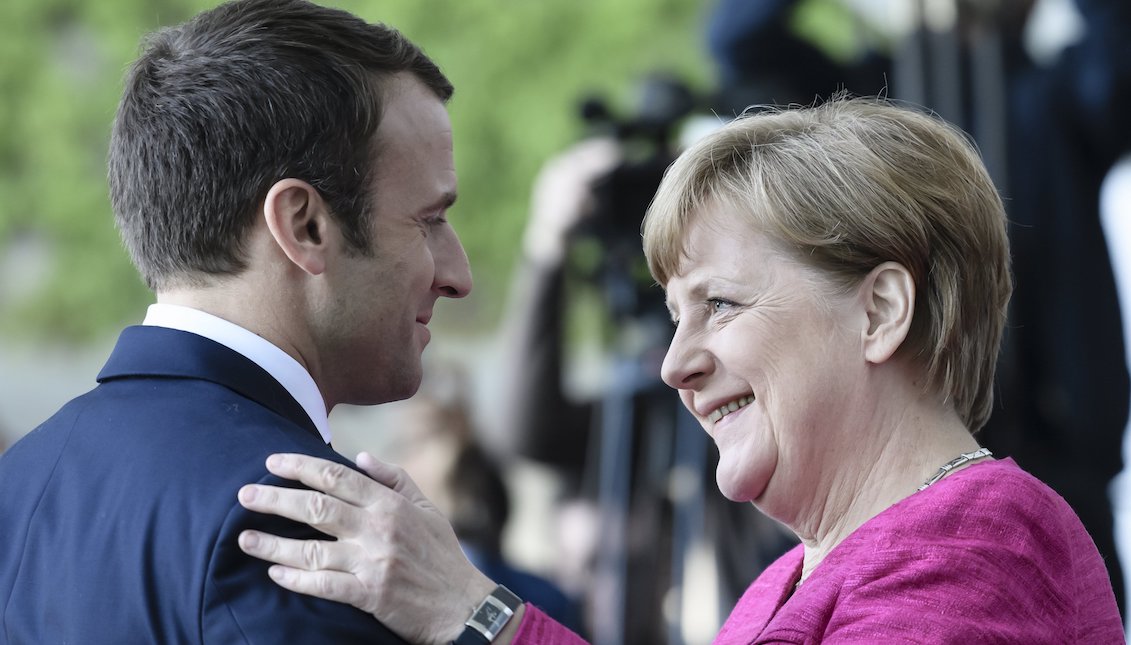
Emmanuel Macron: for a new European Community
After his victory in the national elections, Emmanuel Macron was invested yesterday as the new president of France. His slogan was clear: the European Union…
Following the tradition of his country, and after dismissing the former president François Hollande from the courtyard of the Elysee Palace, Emmanuel Macron heard his proclamation as head of state and the army of the voice of the president of the Constitutional Council, Lauren Fabius.
In his first speech, the new president made clear his position and the direction his new government will take: "the world and Europe today need, more than ever, a strong France, sure of its destiny, who carries the voice of freedom, who knows how to create the future". In this way, Macron cleared any doubt of his commitment to the European project, stating the need for a new "refounded and relaunched" model, for the sake of its citizens.
Emmanuel Macron receives a nation in complete "institutional and economic lethargy", according to international analysts, with urgency for a resounding turn in the institutional directions that would have carried out its predecessors.
According to the ABC of Spain, Macron has already announced the frequent use of executive legislation to prevent measures such as the revision of labor legislation, modernization of tax collection mechanisms or Social Security contributions, "to remain bogged down, prisoners of partisan struggle". This would indicate that the new administration would also need a majority in the Assembly.
To this end, the new president has appointed today a conservative prime minister, trying to close his flanks for the legislative elections. Edouard Philippe, 46, is a lawmaker and is the mayor of the port city of Le Havre, and is part of the moderate center-right party, the Republicans.
According to Reuters, Philippe will be the necessary counterweight to the former socialist members of parliament who have joined Macron's cause.
In this way, the new president will try to reduce the gaps between the French right and left, who have dominated French politics for decades, through the Republican support that may contract the appointment of the new Prime Minister.
"It is the first time in modern political history in France that a president has appointed a prime minister out of his camp without being forced to do so by the loss of parliamentary elections," Reuters reports.
Macron has avoided at all costs becoming the guarantor of moderate socialists and "being a center-right satellite," in order to obtain the majority in the legislative elections to carry out his government project. The goal of this political strategy is, according to the analysis of Antonio Navalón, "the containment of populism" within the French nation, "although the designation continues that much of the old parties that ruled the world are now in danger of extinction".
RELATED CONTENT
His agenda then aims to raise the European project to convince a population increasingly unhappy with globalization and the Schengen area. "The French who feel forgotten by this great movement of the world should feel more protected," he said, promising a reform to curb "endemic unemployment" and the constant terrorist threat.
He also said that he “would not give in” to the program he promised during his political campaign, freeing up work, encouraging private initiative, giving priority to creation and innovation and strengthening national solidarity, as reported by La Vanguardia.
But the flag of his government and his speech will be the re-launch of the European Union, his first act as president being an official trip to meet German Chancellor Angela Merkel in Berlin today.
According to El País of Uruguay, "Germany and France are today the great supporters of the European bloc, and their destinies were even more tied after the Brexit."
During his speech, Macron said, "we will need a more effective, more democratic, more political Europe, because it is the instrument of our strength and our sovereignty."
But for the critics, this gesture would mean that European domination is still the same as Napoleon’s: "who dominates Germany, dominates Europe," according to Navalón in El País. Both the German chancellor and the President of the European Commission, Jean-Claude Juncker, assured Macron "that he can not move a single comma and that the Europe he dreams of - the one dreamed up by the great forgers of European thought - is only possible as long as it fits with what Berlin thinks and the needs of Brussels bureaucrats", the analysis continues.
The promise of a remodeled European Community is then, for Macron, a priority with many obstacles in the way. Not only will it require a parliamentary majority to back up his governance model but also a negotiation strategy that will lead to a consensus with his European counterparts.
We will see in the coming months how the young president will try to fulfill all his citizens.











LEAVE A COMMENT: